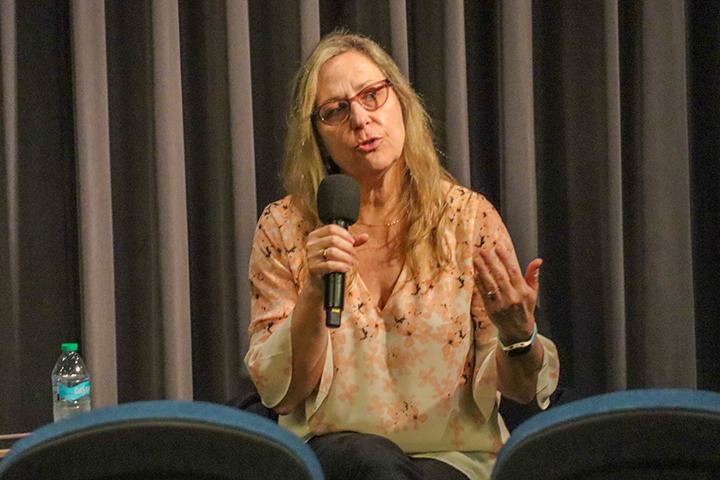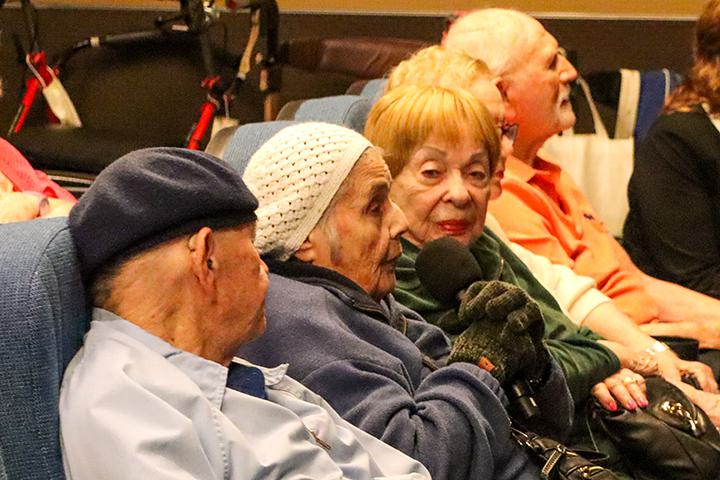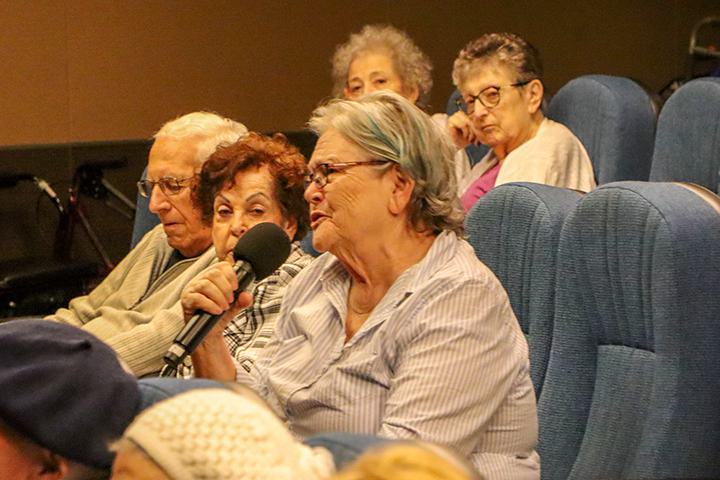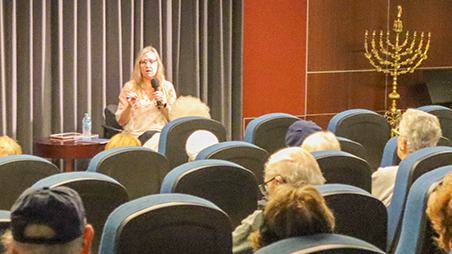Seniors and the Benefits of Social Connections


Seniors and the Benefits of Social Connections
Los Angeles Jewish Health is dedicated to ensuring the wellbeing of thousands of seniors each year. Physical health is just one indicator of how older adults are faring; mental and social health are also critical markers. This was the focus of a recent event held at LAJH’s Fountainview at Eisenberg Village featuring noted scholar Lené Levy-Storms, PhD.
An associate professor of social welfare and medicine/geriatrics at UCLA, Dr. Levy-Storms addressed a near capacity crowd in the Fountainview Theatre about the importance of nurturing and maintaining social connections. It’s a topic that is drawing more attention as researchers deepen their understanding of the ways in which social health impacts human lives.
“It’s programmed in our DNA to be social,” Dr. Levy-Storms said. “In fact, scientific literature shows that not having adequate social connections can yield the same adverse health effects as obesity and smoking.”

This year, the U.S. Surgeon General released a report detailing what he called the country’s current “epidemic of loneliness.” According to the report, too many Americans feel an acute sense of social isolation. Dr. Levy-Storms noted that shining a light on the problem is essential to fixing it, since lack of awareness has prevented the development of vital resources.
“We don’t have a healthcare system designed to give us remedies when we’re ailing from social health issues,” she said. “Beyond the healthcare arena, there’s also a big emphasis in our society on building up financial capital, and especially saving for retirement and older age. But where’s our social capital? What’s going to sustain us to feel connected as we get older and start to lose some of the people in our lives?”
Dr. Levy-Storms’ talk was part of LAJH’s larger efforts around assessing urgent community needs. “Part of being a licensed nonprofit hospital means continually gauging how best to serve the people who rely on our care,” says Ilana Springer, the CEO and administrator of LAJH’s Joyce Eisenberg Keefer Medical Center. “Our most recent assessment revealed that seniors are particularly susceptible to isolation and loneliness, with 20%-40% reporting feeling lonely at any given point in time.”
The solution, in Dr. Levy-Storms’ view, is not just building new relationships throughout our lives—it’s also making sure they are meaningful ones.
“What is a meaningful relationship? The key is to establish emotional connections,” she said. “This requires us to get into a mindset of finding common ground with other people. It’s easy to say, ‘I don’t have anything in common with this person,’ but we can change that through listening and connecting with them. Then, hopefully, we experience reciprocity, where the listening goes both ways.”
At the conclusion of Dr. Levy-Storm’s talk, the audience moved outside to chat over brownies and lemonade, giving them a chance to forge new connections and put her advice into practice.


